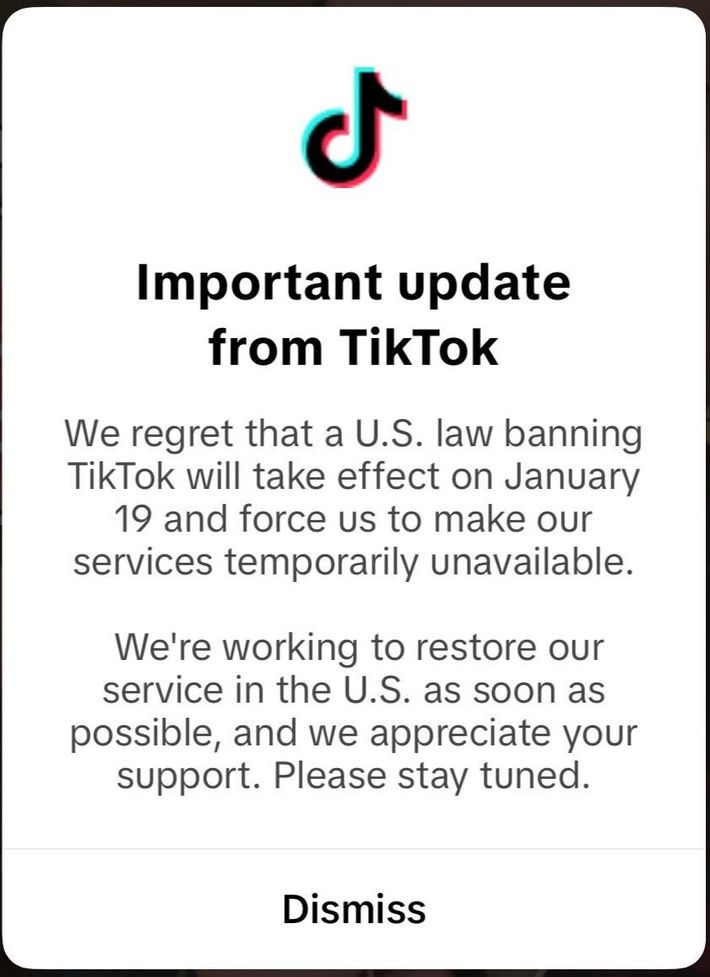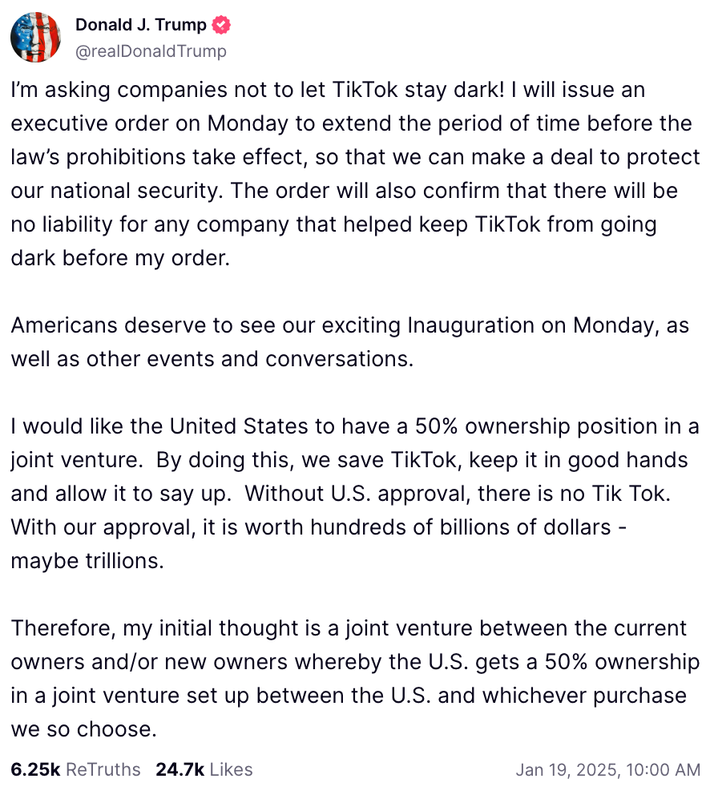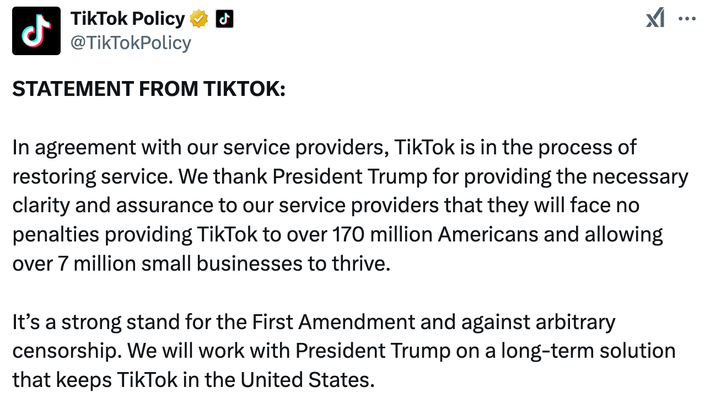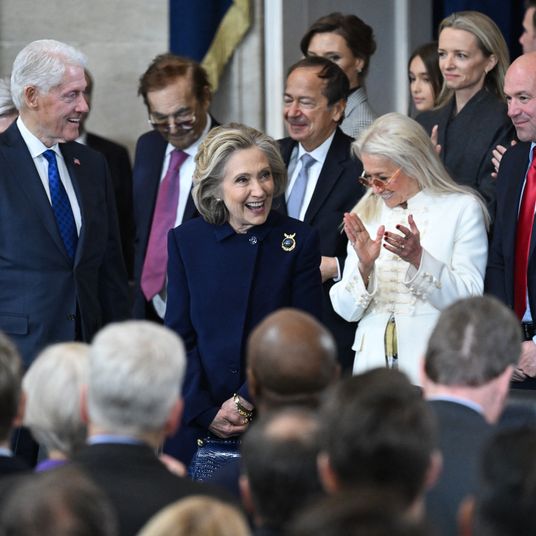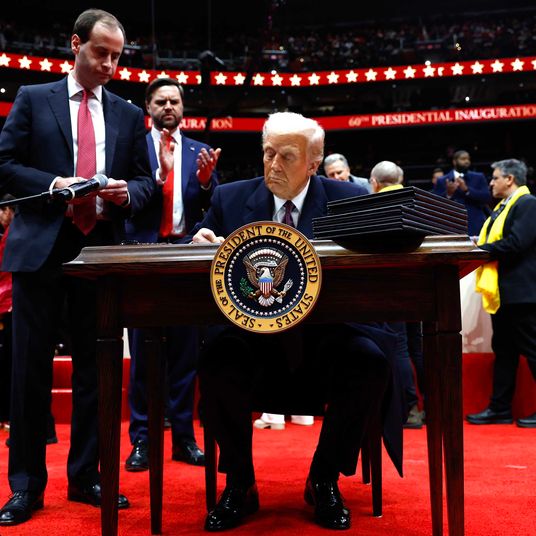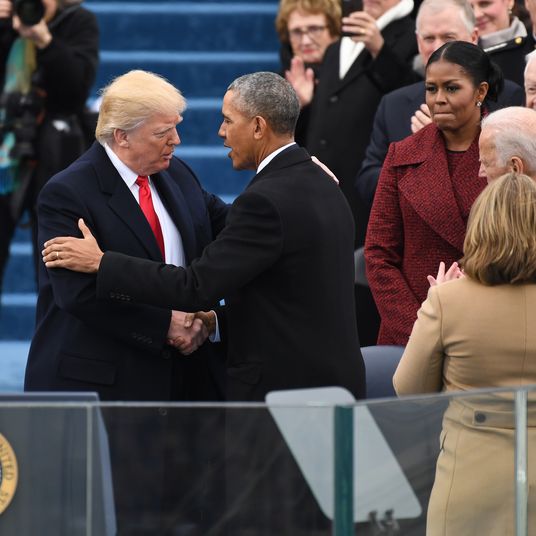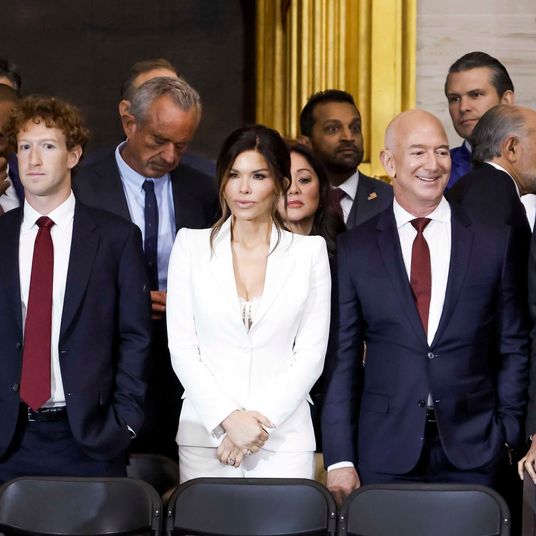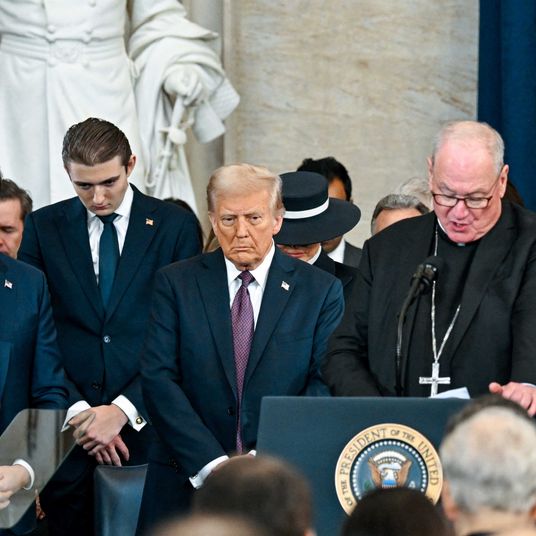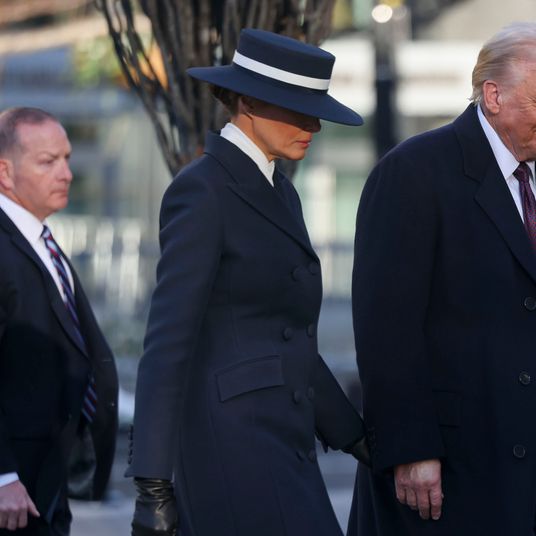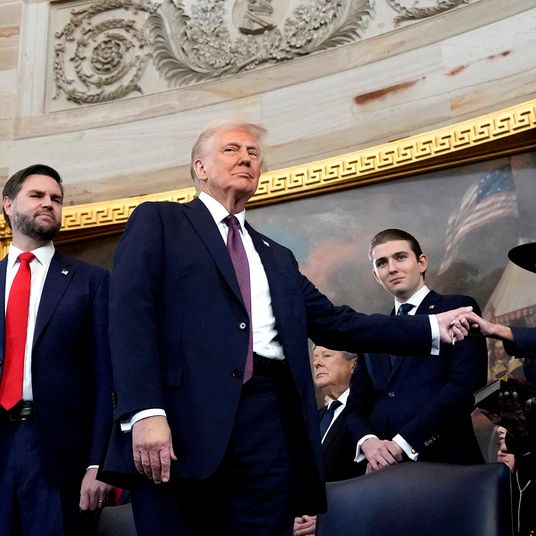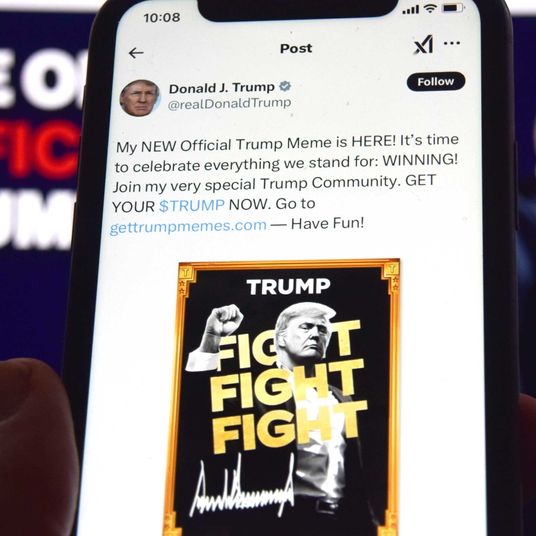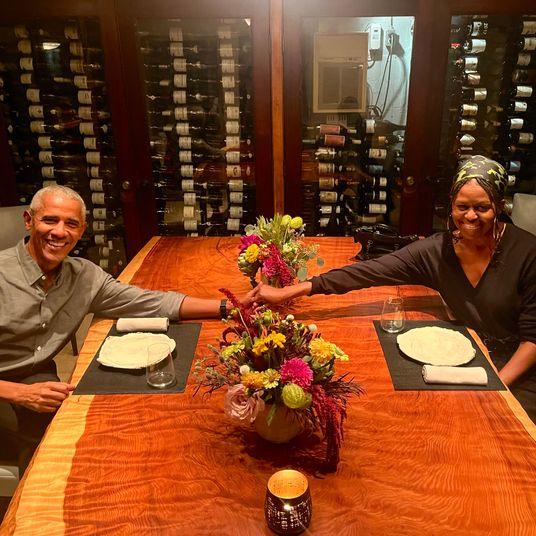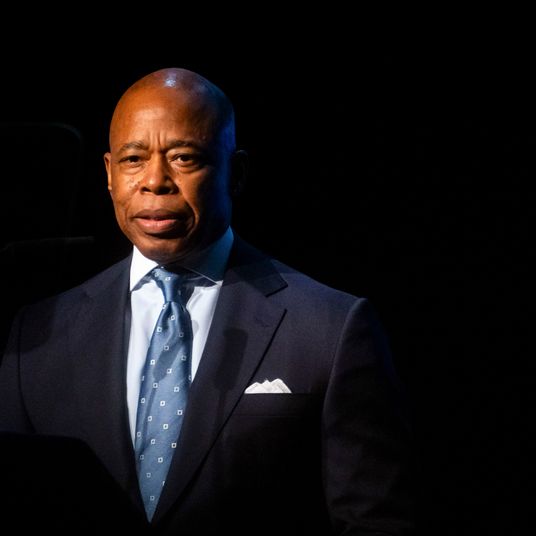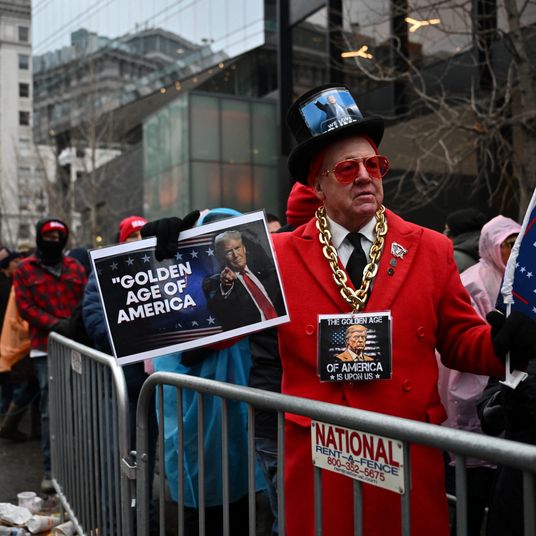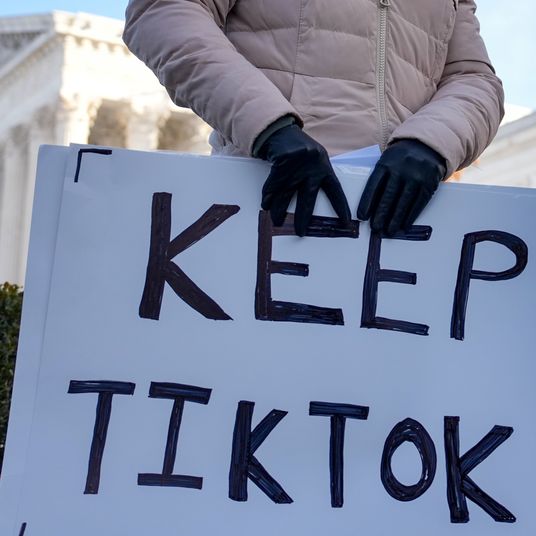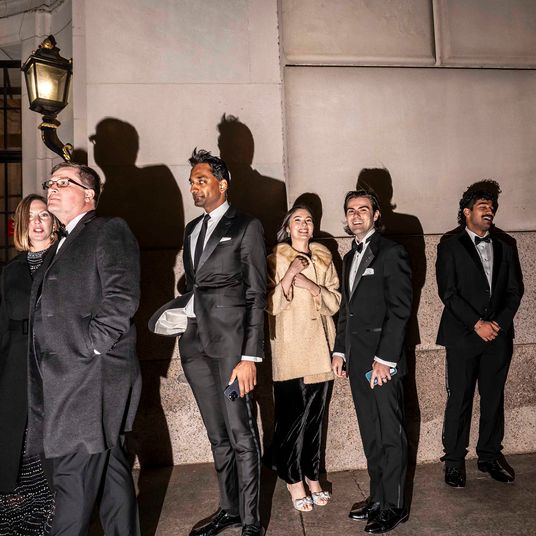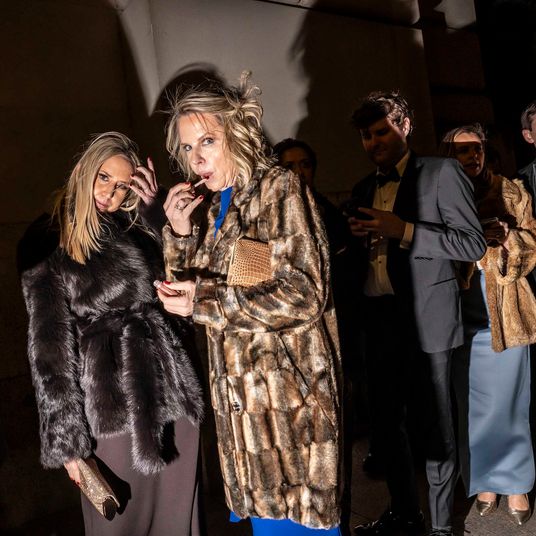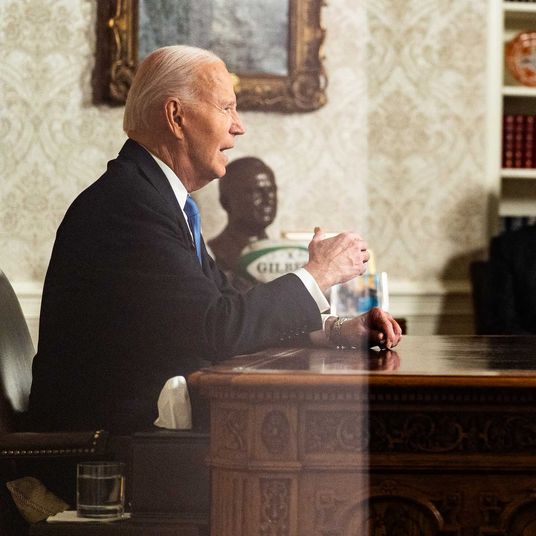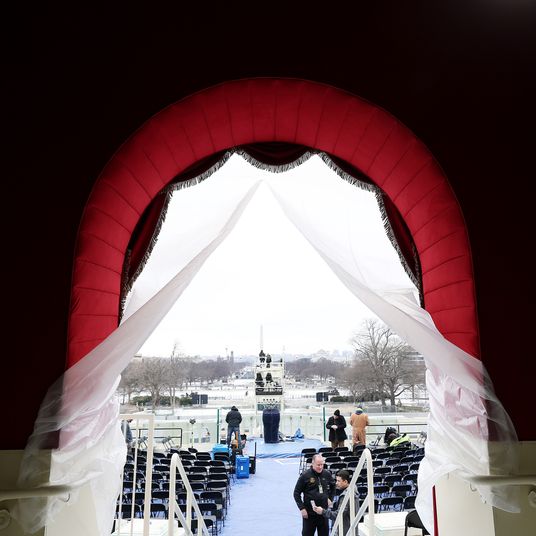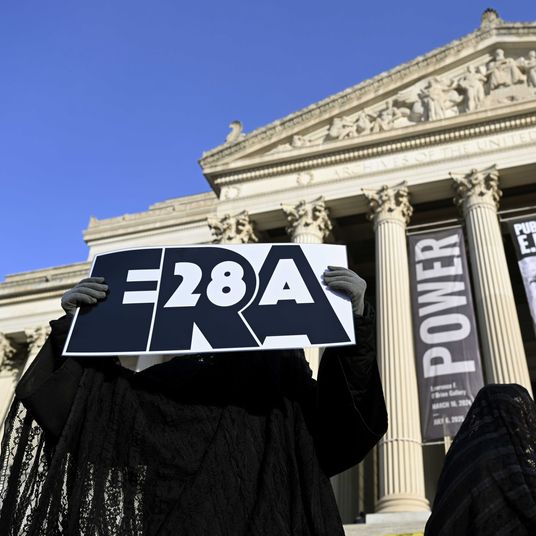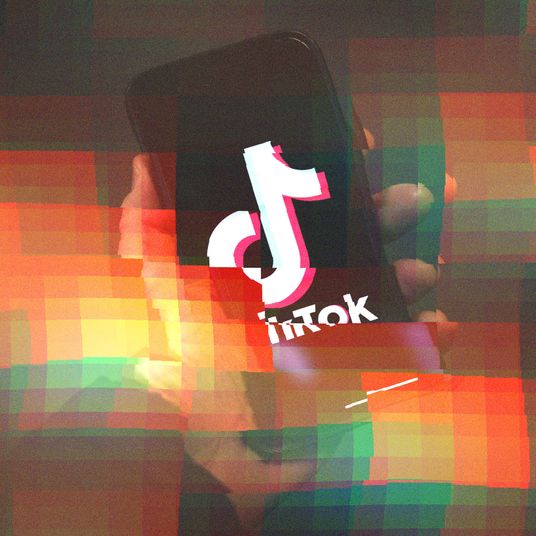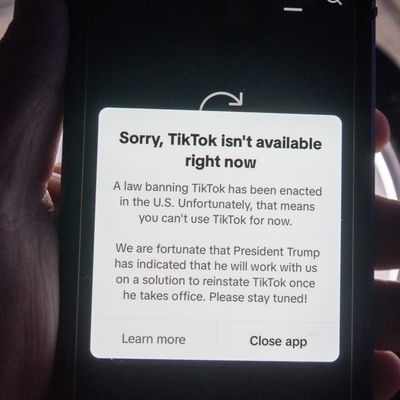
My last TikTok was a post from @TherapyJeff, real name Jeff Guenther. He described how dispensing free mental health advice via short-form videos had given him courage to face issues in his personal life, provided a new creative outlet, and “brought so much joy into my life.”
And now, the community he’d built online over several years was being switched off.
“I hate that it feels like the most out-of-touch mom and dad are taking away a place that means so much to so many millions of people,” Guenther said. “I hate that this community will never be replicated. I hate that I’m being forced to grieve something I shouldn’t be $@#%7*$ forced to grieve.”
I hadn’t intended to watch the demise of TikTok live. But a new friend happened to text me a TikTok about a book series we’ve been reading minutes before the Chinese-owned social media app when dark on Saturday night. With the federal ban set to go into effect on Sunday, TikTok’s parent company ByteDance began shutting down the app for U.S. users. My partner had already gotten the dreaded pop-up message with an “important update” from TikTok, but I got a few more minutes to scroll through depressing “goodbye” views.
By Sunday afternoon, TikTok was working again for some people — but perhaps not for long.
The sadness I and many of the 170 million TikTok users in the U.S. are experiencing today feels simultaneously embarrassing and devastating. I’m a 41-year-old woman with a very full and satisfying life. I shouldn’t feel this upset about the loss of a silly social media app, right?
I’m sure that’s what a lot of non-TikTok users are thinking today. TikTok grief is probably equally confusing to people who merely created an account, scrolled through a few dumb memes and choreographed dances, and went back to X or Reddit. Can’t people just switch to another social media app to fulfill their need to watch video of a skateboarder chugging cranberry juice while listening to Fleetwood Mac?
Sure, there are other apps for sharing viral videos. Many have fled to YouTube Shorts or Instagram (where @TherapyJeff reposted his last TikTok). But for those of us who carefully honed our algorithm with our Chinese spy there really is no replacement for the information sharing and community we found on TikTok. If you only scrolled through TikTok on occasion, and mainly watched and interacted with those dumb dance videos, you probably never hit the substantial side of the app that makes it so beloved.
Of course, my feed was full of purely entertaining content. But it was also a place where therapist KC Davis helped deconstruct my guilt over my messy house. It’s where I watched internet culture researcher Aiden Walker break down meme culture, and teach me that Gen Alpha’s beloved “Skibidi Toilet” YouTube series isn’t as scary as it looks. Other creators I follow educated me on religion, U.S. history, how to make bread, the health benefits of a treadmill desk, the music history references in “Cowboy Carter,” and what life is like in Russia, among many other things.
The corner of the app that had the biggest impact on my life was undoubtedly BookTok. Like many people, I rediscovered my love of reading fiction just as I got on TikTok in the early days of the pandemic. While in reality I was locked in my house, BookTok made it feel like I was joining a fun and positive community, full of recommendations, analysis, fan art, memes, and Pepe Silvia-esque theorizing. Without BookTok I never would have read the 16-book fantasy series I was texting about last night, or joined several in-person book clubs that brought new friendships and a lot of joy into my life.
Politicians from both parties banded together to shut down TikTok, claiming it’s a serious threat to U.S. national security. But they’ve done a poor job of explaining why TikTok in particular — and not other China-based apps operating the U.S. or American social media companies misusing users’ data — must be reined in immediately.
Their capriciousness was underscored by government officials last-minute scrambling to save TikTok. Last week a group of Democrats in the House and Senate — many of whom voted for the ban —introduced a bill to give ByteDance another 270 days to sell and divest from TikTok.
“It’s clear that more time is needed,” Schumer said. “We will continue to work to find a responsible solution to keeping TikTok going, protect American livelihoods, and protect against Communist Chinese Communist Party surveillance. We must and can do all three.”
If we can do all three, why didn’t lawmakers try that first? Why is the fate of this social media app coming down to whether Donald Trump — who got the ball rolling on banning TikTok back in 2020 — personally intervening to save it, as he claimed he would do on Sunday morning in a Truth Social post?
On Sunday afternoon, TikTok said that in light of Trump’s post it was “in the process of restoring service”:
But it’s unclear if this means TikTok is saved for good, or it’s just getting a temporary reprieve before it’s gone for good.
The U.S. government does worse things than banning TikTok all the time. But arbitrarily banning an app that provided a lot of Americans with comfort and connection feels personal, depressing, and ominous. I know where I’d usually go to processes this strange grief, or maybe just distract myself from it for a few hours, but sadly that is no longer a reliable option.
More on TikTok
- How Long Will TikTok Return For? Updates
- The Chaos Lurking in Apple’s Most-Popular Apps List
- The TikTok Ban Just Got One Step Closer to Reality



